The former Partizan athlete Slavisa Jokanovic was named Partizan's new head coach and the club has also added an additional sport director, Ivan Tomic. The club bolstered its squad with foreign players such as Juca, Almami Moreira and Lamine Diarra. The 2007-08 season and 2008-09 season will be remembered as among the most successful seasons in the club's history in the domestic arena. For 2008 and 2009, Partizan held their cup and league double in the 2007-08 season it was the first time in within its history. However, during Europe, Partizan suffered a major shock when UEFA banned Partizan out of the 2007-08 UEFA Cup season and fined the club EUR30,056 for crowd disturbances during their away qualifier with Zrinjski Mostar, which forced the game to be stopped for 10 minutes. UEFA found that travelling Partizan supporters to be responsible for the incident however, Partizan were permitted to play in the return match while the appeal was considered. Partizan's appeal was denied and Zrinjski Mostar made it to the next round. However, Partizan defeated them with an overall score of 11-0. The following seasonthe team strengthened its squad by bringing in Brazilian forward Cleo; Partizan demolished Welsh champions Rhyl with an 8-0 score (12-0 in the aggregate) on the 21st of July, 2009. The score was their biggest ever margin of victory for a single match in European competitions. After being dropped to the Champions League, Partizan qualified twice in succession for the second level in UEFA competition. They were Black & Whites played in the 2008 UEFA Cup and 2009 Europa League group stage. However, similar to 2007, the club could not progress further. However, despite the best European season was in the past however, the club finished with no trophy.
Following Jokanovic The club decided to offer the chance to new coach, who was a ex- Partizan athlete Aleksandar Stanojevic. Stanojevic was one of the most youthful head coaches in history at Partizan. Stanojevic was appointed head coach in a very challenging time, and was able to win the title in 2010 even though Partizan was 10 points back of the first placed Red Star Belgrade. In 2011 season, the club achieved the double. Through UEFA tournaments Partizan got into the 2010-11 UEFA Champions League after beating Anderlecht twice. In Partizan Stadium, at Partizan Stadium the result was 2-2. The game in Brussels on the Constant Vanden Stock Stadium, the result was the same, the same, 2-2. The star player was Cleo with two scores against Belgians. After a penalty incident, Partizan reached again the UEFA Champions League group stage. The draw for the group phase has determined that Partizan will be in the group H alongside Arsenal, Shakhtar Donetsk (the winner of the 2008-09 UEFA Cup) and Sporting Braga (the final runner-up in the 2011-11 UEFA Europa League). The matchday 1 was a loss for Partizan. Partizan was defeated by Shakhtar at the Donbass Arena in Donetsk (0-1). The next game Partizan took on Arsenal in Partizan Stadium and were beaten by 1-3 after playing an inspired football match with a 10-man team in the final thirty minutes of game. In two games in the match against Sporting Braga, Partizan failed to score, and they lost both matches (0-2 in Braga and 1-1 at Belgrade). The final two rounds of the group also featured the best football, but the result was not enough. Shakhtar Donetsk and The Gunners beat Partizan again, this time with a score of 0-3 in Belgrade and 3-3 in the Emirates Stadium.
In the next season, the loss during 2012's Europa League qualifying stage, did not affect Partizan's chances in the national competition, but following the half-season, Stanojevic had to be removed. Partizan was then able to sign the former Chelsea coach Avram Grant who was able to hold on to the lead he had gained during the half-season. Grant guided Partizan towards their sixth consecutive league win but they lost three times to their fierce opponents Red Star. Grant was fired and the former Partizan director Vladimir Vermezovic returned to Belgrade in May 2012. Partizan was not able to qualify for in the 2012-13 UEFA Champions League, but did earn a spot in the 2012-13 UEFA Europa League group stage. In the wake of poor performances during the second phase of the national championships, Vermezovic was dismissed and was replaced with Vuk Rasovic. After winning the eternal derby and the final round, Rasovic won the sixth consecutive title and a record of 25th place in the history for the team. As the winner in the Serbian SuperLiga for 2012-13 season, Partizan managed to equalize the record of the national team in terms of number of championships won.
In the summer of 2013 Partizan defeated Shirak (1-1 Away goal) and then lost to Ludogorets Razgrad (1-3 on aggregate). In the play-offs round of the 2013-14 UEFA Europa League, Partizan took on Thun. Partizan defeated Thun by a score of 1-0 in Belgrade and was beaten 0-3 by Thun and was not able to qualify to the Europa League. In the absence of a single trophy or group stage of the European tournament The season was among the most difficult in the last 10 years.
After a gap of a year in an European arena, Partizan entered at the 2014-15 UEFA Europa League by beating Neftchi overall score, 5-3 (3-2 on the road and 1-1 away). Partizan is awaiting the draw to be placed in the group C alongside Tottenham Hotspur, Besiktas and Asteras Tripoli. Partizan started with the Europa League in excellent form and was undefeated against English big Tottenham however, after four games, the team lost. This season has been good one for Partizan and they won the Serbian championship and getting to the group stage in the Europa League.
After missing the play-off to qualify for the Champions League in the summer of 2015, Partizan has directly entered the 2015-16 UEFA Europa League. Partizan was placed in Group L with Athletic Bilbao, AZ Alkmaar and FC Augsburg. Partizan had three victories during the Group Stage (3-2 at home, 1-1 away against AZ while 3-1 was scored in Augsburg against the same team) However, he was not able to make it into Round 32. Partizan did not win this title but he did win Serbian Cup after five years and without conceding a goal. Partizan is the first team that won the Serbian Cup without conceding goal in the history of the sport.
Just a few days after the sixth double of the club's the club's history (on during the year 2016-17) Coach Nikolic quit the club and joined Hungarian team Videoton. Within a few days of Nikolic's departure Miroslav Dukic returned Partizan. In the second round of qualifying to be played for 2017-18 UEFA Champions League, Partizan defeated Buducnost Podgorica (2-0 on aggregate) However, at the end of the round,, they lost to Olympiacos (3-5 in aggregate). In the play-offs round for the 2017-18 UEFA Europa League, Partizan took on Videoton and former Coach Marko Nikolic. After a draw of 0-0 during the play-off round in Belgrade, Partizan defeated Videoton 4-1 in Felcsut and made it to the group stage. There, they were placed in the UEFA Europa League's group B along with Dynamo Kyiv, Young Boys and Skenderbeu Korce. Partizan was drawn 1-1 against Young Boys in the first game of group B. Partizan later played against Dynamo Kyiv; after leading two-to-one at halftime the team lost the match 3-2. The following two Partizan games were played against Skenderbeu Korce; in Korce the two teams drew 0-0 and then they won 2-0 in Belgrade. Partizan later beat Young Boys 2-1 at home and earned a spot in the knockout phase. In the final match of the group Partizan was defeated 4-1 by Dynamo Kyiv in Kyiv, even though they had already qualified. Partizan was ranked 2nd in the group with 8 points (two more than Young Boys and five less than Dynamo Kyiv). At the Round of 32 stage, Partizan was playing Viktoria Plzen In Belgrade the team were leading however, they lost a last-minute goal that came from an offside location, and the game ended in the score at 1-1. Then, in Plzen, Viktoria won 2-0 with a 2-0 score, as did Partizan was eliminated UEFA Europa League at the round of 32. The final score was 3-1 in favor of Viktoria in aggregate.
In July and August of this year, Partizan secured their ninth participation in the group stage of the UEFA Europa League. Under Savo Milosevic's direction, Partizan knocked out Connah's Quay Nomads F.C. (1-0 as well as three-one), Yeni Malatyaspor (3-1 and 0-1) and Molde FK(2-1 with 1-1)) in the qualifying matches. On the 30th of August, Partizan was drawn in group L in the 2019-20 Europa League, along with Manchester United, FC Astana and AZ Alkmaar. On September 19, Partizan opened the group stage of the tournament with a draw of 2-2 at home against AZ. Because of UEFA restrictions, the game was played in a closed-door stadium with only U15s permitted to be present. The officially, the attendance was 22,564. Partizan defeated Astana (2-1 at home) during match day 2 but then lost the next two matches with Manchester United (0-1 in Belgrade and 3-0 in Manchester). They got a draw in Alkmaar with AZ (2-2) as well as beat Astana 4-1 at home in the final two matches of their group. However, that was not enough to qualify because they finished at the third place in the league, only one point ahead of AZ. The SuperLiga, Partizan won second spot with just 14 points that Red Star. The Serbian Cup, Partizan defeated Red Star in the semi-finals with a score of 1-1 following the 58th minute goal scored by Bibras Natcho. In the final, at the Cair Stadium in Nis, they faced Vojvodina. After the normal time, the score was 2-3, and Partizan was able to equalize in the closing minutes of the game with a the goal of awe-inspiring Strahinja Pavlovic. But, Vojvodina had a better performance after the shootout and won 4-2, and after a long time Partizan was unable to win winning a trophy.



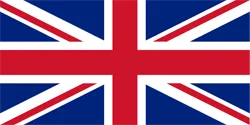 ENG
ENG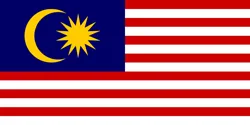 MYS
MYS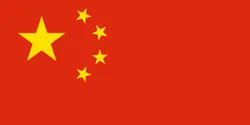 简体中文
简体中文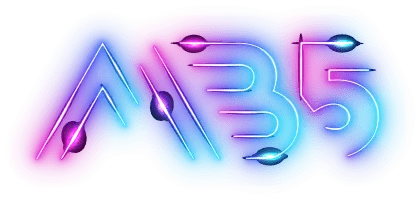





















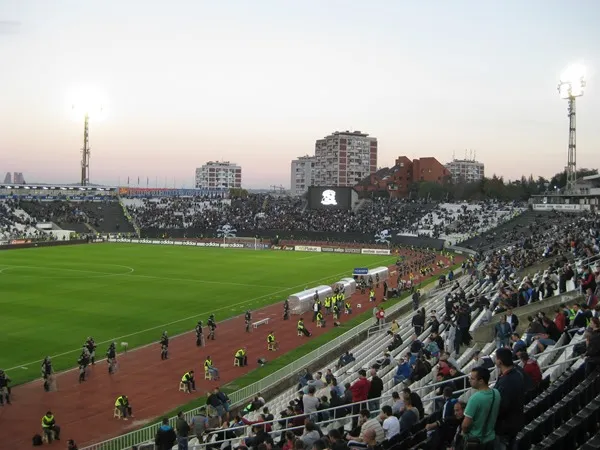
 QarabaÄŸ
QarabaÄŸ

 Partizan
Partizan Malmö
Malmö

 BIH
BIH MNE
MNE CPV
CPV MLI
MLI NED
NED Kristijan Belić
Kristijan Belić
 Queensy Menig
Queensy Menig Fousseni Diabaté
Fousseni Diabaté Radomir Antić
Radomir Antić Slaviša Jokanović
Slaviša Jokanović SreÄko Katanec
SreÄko Katanec Kiril Simonovski
Kiril Simonovski Miroslav Brozović
Miroslav Brozović Jia Xiuquan
Jia Xiuquan Dominic Adiyiah
Dominic Adiyiah Seydouba Soumah
Seydouba Soumah Almami Moreira
Almami Moreira Cléo
Cléo
 Ifeanyi Emeghara
Ifeanyi Emeghara Mohamed El Monir
Mohamed El Monir Ivan Bandalovski
Ivan Bandalovski Tomasz RzÄ…sa
Tomasz RzÄ…sa Virgil Popescu
Virgil Popescu Filip Holender
Filip Holender Macky Bagnack
Macky Bagnack Lamine Diarra
Lamine Diarra
 Kim Chi-woo
Kim Chi-woo David Manga
David Manga Joseph Kizito
Joseph Kizito